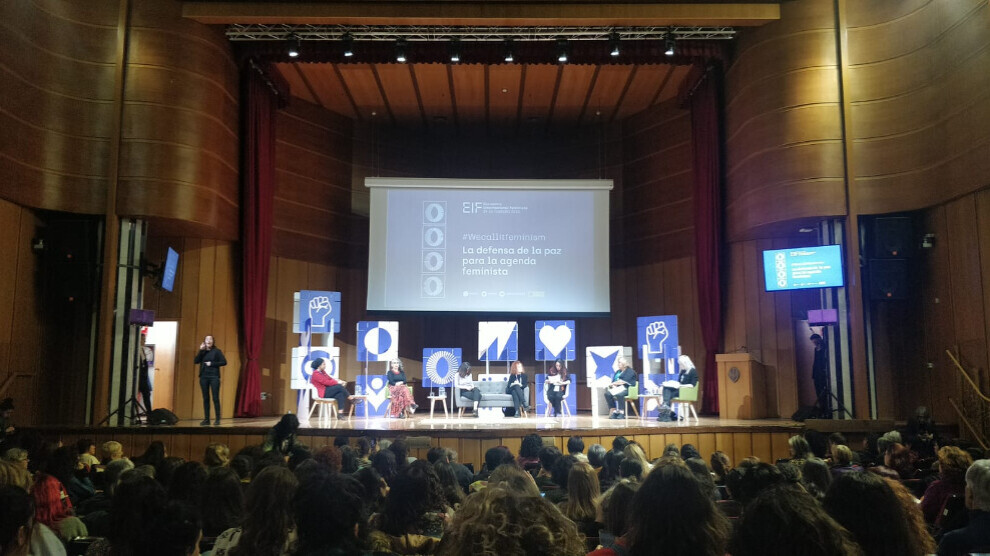International Feminist Meeting publishes statement of support for peace in Colombia
Women at the International Feminist Meeting published a statement of support for peace in Colombia.
Women at the International Feminist Meeting published a statement of support for peace in Colombia.

Women from all over the world from the social, academic, artistic, political and governmental spheres met at the International Feminist Meeting ‘We call it feminism’ in Madrid last weekend.
Among the other decision taken was a statement of support for peace in Colombia.
The statement said: "We express solidarity with Colombian women who have suffered, not only from structural sexist violence, but also from the armed conflict that has crossed their bodies, communities and territories and, against which, they have risen up to defend their rights, life and their territories.”
The women also expressed their “support for the Total Peace policy led by the government of President Gustavo Petro to provide a negotiated solution to the armed confrontation that, for more than five decades, has been experienced by more than 9 million Colombians, and which has led to an exercise systematic violence against women, especially rural, indigenous, black and peasant women.”
The statement called on “the Colombian government and all the armed actors to implement a gender and women's rights approach in the dialogues they are conducting, in the measures they are discussing, and in the reparation tools available to get out of the war. As well as the participation and incidence of women in all issues and scenarios that address the current negotiation and future negotiations.”
The statement welcomed the “restart of the Dialogue Table between the Government of Colombia and the National Liberation Army - ELN, we recognize as positive and a reference the joint conformation of the negotiating team of the Colombian government and we value the decision to feminize the dialogue process.”
The signatories are as follows:
Irene Montero, Minister of Equality of Spain
Ione Belarra, Minister of Social Affairs and the 2030 Agenda of Spain
Antonia Orellana, Minister of Equality and Gender Equity of Chile
Nadine Gassman, President of the National Institute for Women of Mexico
Elizabeth Gómez Alcorta, Former Minister of Women, Gender and Diversity of Argentina
Anahí Durand, Former Minister of Women and Vulnerable Populations of Peru
Lilith Verstrynge, Secretary of State for the 2030 Agenda and Secretary General of Unidas Podemos
Paola Pabón, Provincial Prefect of Pichincha, Ecuador
Idoia Villanueva, MEP in the European Parliament
Ángela Rodríguez Pam, Secretary of State for Equality and Against Gender Violence
Gabriela Montaño, Former President of the Chamber of Senators and of the Chamber of Deputies of Bolivia and former Minister of Health of Bolivia
Manuela D'Avila, Journalist, Former Federal Deputy of Brazil and Former Vice Presidential Candidate
Karol Cariola, Deputy of the Republic of Chile
Isabel Serra, Co-spokesperson of United We Can of Spain
Cristina Fallarás, Journalist, Writer and Activist
Oihana Etxebarrieta, representative of the Euskal Herria Bildu parliamentary group
Melike Yasar, Kurdistan Women's Movement